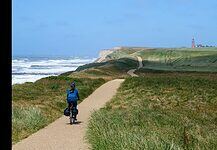Travel to Greece
Greece is a fascinating and enchanting country to visit. From wild nightlife scenes to romantic coastlines, sparkling blue beaches, fresh seafood and ancient relics. There is so much to absorb while traveling in Greece.
Greece has been a popular tourist destination for centuries, making it a country geared up for tourists. Travelers flock to the ancient capital city of Athens to dive into the history and rich culture before swirling off to the Greek islands for sun, sand and lazy days. Even though it’s hot on the tourist front, there are still off-the-beaten path places to explore that are under the radar of mass tourism.
The capital city, Athens, is most likely the first port of call for visitors to Greece. The Parthenon is a highlight here along with its beautiful views overlooking the Saronic Gulf. Athens is also known for producing some of the greatest philosophers, thinkers and poets.
Apart from Athens, Greece attractions include the many islands. You’ve heard of Greek island hopping right? You can head to the major islands of Mykonos and Santorini or rather explore some of the quiet Greek islands like Lemnos and Anafi.
Planning a trip to Greece is always exciting. There are also loads of Greek island tours (like with Contiki or G Adventures) available to consider when planning a trip to Greece – from day trips to multi-day tours.
We hope that we can help you with a few tips and inspiration for your Greece holiday.
Visa Requirements for Greece
Greece is part of the Schengen agreement, which allows most of the EU citizens to enter the country with only their ID. Visitors from certain countries like the USA, Canada and New Zealand can visit visa-free for up to 90 days in Greece. A stay of longer than 90 days for non-EEA or non-Swiss citizens usually requires a visa, which you need to get before your trip.
Other nationals, like those from Russia, Asian countries and South Africa, will need to apply for a Schengen Visa before arriving in Greece. Citizens of Antigua and Barbuda, the Bahamas, Barbados, Mauritius, Saint Kitts and Nevis and Seychelles are allowed to work in Greece without obtaining a visa for the period of their 90 day visa-free stay. However, this ability to work visa-free does not necessarily extend to other Schengen countries.
For more information on the Greece Schengen visa, visit this website.
Important Cultural Information
Greek’s are generally quite informal when interacting with each other, often treating everyone like a cousin. They also generally let strangers make the first move before interacting with them. You may therefore be ignored when entering a cafe or walking past a group on the street – but once you make the first move to greet, you will be responded to with politeness.
Greeks generally enjoy a ‘work-to-live’ culture rather than a ‘live-to-work’ culture – taking leisure time very seriously. This shouldn’t be perceived as laziness.
Dress codes is generally casual with exception when entering churches. Here women will need to cover their shoulders, and both sexes need to cover their knees.
Greeks generally gesture a lot with their hands, and can be quite expressive. If someone is swearing at you they will put out their entire hand, palm open with five fingers extended out – like signalling someone to stop.
Also note that while smoking in public spaces is technically prohibited by law, most Greeks ignore this. As a foreigner however, it is best to follow the laws.
Banking & Money in Greece
Greece makes use of the Euro. 100 cents makes up 1 Euro. Each country can produce their own Euro coins, where one side of the coins has their own unique designs, while the other side has a European standard design. You can use the Euro in any of the eurozone countries, without needing to exchange money when crossing the borders.
The largests banks in Greece include Bank of Greece, Alpha Bank, Eurobank Ergasias, National Bank of Greece and Piraeus Bank.
To exchange money, there are plenty of ATMs, where you can withdraw up to €500 (some may only allow up to €200), usually for a fee, depending on your own bank conditions. It’s quite common for ATM machines in busy tourist locations to run out of money on weekends – they can stay empty until mid-week.
Credit cards are well accepted all over. But it’s always useful to have a few Euro notes, especially when traveling to the more remote islands.
Medical Emergency Information
If there is an emergency, you can call 112 from any phone at no cost. This will get you in touch with the police, firefighters and ambulances.
The national emergency numbers are:
- 100 – police
- 199 – fire brigade
- 166 – emergency medical service
- 108 – coast guard
- 197 – emergency social assistance
If you’re looking for travel insurance, we are an affiliate of World Nomads.
Wi-Fi and Internet in Greece
There are three main network operators in Greece: Cosmote, Vodafone and Wind.
While Cosmote has the widest coverage and fastest data speeds, Wind offers the lowest prices. Vodafone is the middle ground on speed, coverage and price – making it the most recommended operator to go with.
You will find several shops selling SIM cards around Greece, including on the islands. You can either search for shops for the different networks, or for convenience stores that sell SIM cards. The process is relatively quick and easy in Greece, you will be required to provide a copy of your passport though.
Another option is to rent a mobile MiFi device, your own hotspot. Those costs from around €5 per day. There are services, which you can pick up at the airport or which gets delivered to the hotel you are staying at.
Wi-Fi is easily available at restaurants, cafes, hotels and some public spaces. Look out for ‘Wi-Fi’ or ‘@’ signs on the doors. Make sure to set-up a VPN (like ExpressVPN) before using public Wi-Fi spots.
You will also find a few coworking spots in Greece, with most based in Athens with a few in other cities like Thessaloniki, Patras and Iraklio.
Arrival in Greece
You will most likely arrive via plane to Greece. The Elefthérios Venizélos International Airport in Athens is the country’s largest and busiest airport.
Other major international airports include Heraklion (Nikos Kazantzákis Int’l), Thessaloniki (Makedonia Int’l), Rhodes (Diagóras), and Corfu (Ioánnis Kapodístrias). Aegean Airlines is the national airline and covers all domestic flights, as well as operates routes to Greece from other European cities. Athens is also well served by airlines from Europe, the Middle East, North America and Southeast Asia.
If you are traveling to the Greek Islands, you will most likely arrive via Athens then either fly on a domestic flight to your island of choice or hop onto one of the Greek island ferries. The main Greek islands with airports include Mykonos, Santorini, Naxos, Paros, Crete, Rhodes, Lesvos, Corfu, Skiathos, Chios, Samos, Kos, Kefalonia and Zakynthos, among a few others.
Check Expedia for available flights to Greece.
You can also arrive in Greece via train. Thessaloniki is Greece’s hub for international rail service, with routes to Sofia, Belgrade and Skopje. International buses from neighboring countries is available, though is quite limited. You can also arrive to Greece via a ferry from Italy (from port cities of Venice, Trieste, Ancona, Bari and Brindisi) and Turkey (from Marmaris to Rhodes, from Cesme to Chios, from Bodrum to Kos, from Kusadasi to Samos).
Areas of Greece
Greece can largely be divided into the mainland and the islands. Greek island hopping is on most Greece itineraries. With a total of 227 inhabited Greek islands, there are plenty to choose from. The islands have been split into eight main island groups, spread throughout the Aegean and Ionian Seas.
The main areas of Greece to travel to are as follows:
Athens and surrounds
The capital city of Greece, Athens is rich in history and culture. The mighty Acropolis is the main highlight for most visiting Athens. Besides its historical aspects, the city is gritty, edgy and packed with character.
Highlights outside of Athens include the Temple of Poseidon at Soúnio, sanctuaries at Ramnous and Eleusis (Elefsína), the burial mound from the great victory at Marathon.
The central mainland
Long known as Greek’s heartland. The ancient oracle at Delphi and the monasteries of Metéora are the most visited attractions in the central mainland. Other highlights include Ósios Loukás monastery and the port resorts of Galaxídhi and Náfpaktos.
The Argo-Saronic Islands
All of these islands are located a stone’s throw away from the mainland, making them popular for day trips from Athens. Égina (Aegina) is so popular that it is almost becoming a city suburb over the weekends. Póros, Ýdhra (Hydra) and Spétses are also popular during the summer months.
The Peloponnese
Technically an island, Peloponnese is located in the southern peninsula. It includes ancient sites, Greek theatres, medieval remains, battle towers and castles. It is also home to Olympia, the host of the Olympic Games for a millennium.
Crete
Crete is the largest of the Greek islands, attracting many visitors. Most resorts and tourist spots are located along the north coast.
Ionian Islands
The Ionian islands also feature many popular destinations, including Corfu, Zakynthos, Paxi, Lefkada, Kefalonia and Ithaki.
The Cyclades
The Cyclades islands feature the most famous Santorini, Mykonos and Paros. Other popular islands include Íos, Naxos and Mílos. These islands offer the best of Greek island hopping! Quiet Greek islands in this group includes Kýthnos, Sérifos, Síkinos, Kímolos and Anáfi.
The Dodecanese
The Dodecanese islands are the furthest island group from the Greek mainland. Rhodes and Kos are the largest of the islands, attracting many tourists for their nightlife and beaches.
Transportation in Greece
You can get almost anywhere on mainland Greece by bus. Almost all archaeological sites are accessible by bus, and you can easily travel between major cities and towns by bus. KTEL is the national operator for intercity busses. Each city will then also have its own bus system.
Trains are another way of getting around, however the national rail system (OSE) is quite limited.
Greek island ferries are great ways to travel between the islands. It’s important to note however, that some ferries can take several hours depending on which islands you are traveling to. The Athens to Mykonos ferry, for example, can take between two – five hours. In high season, you will find an extensive list of ferry companies traveling between the major islands. There are both fast and slow ferries, differing in price.
Athens public transport includes city buses, suburban trains, trams, electric trolley-buses and a metro. When arriving, you can catch the Athens Airport metro into the city, or take a bus, train or taxi. Athens metro tickets are now on electronic cards – for more information on the Ath.ena Card, read here.
You can also use taxis as a form of getting around, most will have a set fee. And when on the islands, it’s sometimes best to walk on foot.
It’s popular to take road trips in Crete – here are some tips for driving in Crete, including the best road trip routes.
Accommodation in Greece
Greece accommodation ranges from top class luxury hotels through to guesthouses and chic boutique hotels. You will find something for all budgets. There are also a fair deal of resorts and hotels aimed at Greek travel packages – including meals and a few activities. The highest concentration of four and five-star hotels can be found in Athens, Santorini, Mykonos, Rhodes and Crete.
You will also be able to find some amazing private villas in Greece, along with stunning apartments on booking sites. For the typical scenes of white facade, rounded houses built along hillsides and into cliffs, you need to head to the Cycladic islands – including Santorini!
Greece hotels in general, especially in the islands but also in the big cities, tend to be simple establishments. Rooms are quite small and feature are often lacking.
If you are traveling in high season, it’s important to book your accommodation in advance as the good ones tend to book up fast!
Food & Dining Guide for Greece
Greece is known for its fresh Mediterranean cuisine. The staple diet here includes fresh vegetables, grilled meats, seafood, freshly made breads, cheeses and yoghurt. Olive oil, lemon, garlic and tomatoes are common ingredients in Greek cooking.
For breakfast, head to a bakery and try one the various types of pies – either sweet or savoury. For lunch you can snack on popular street eats, then head to a good local Greek restaurant for dinner. Note that Greeks eat dinner quite late – often only after 10pm.
Coffee is very popular in Greece. You will find kafetéries all over the country, even in the most remote of places. These are cafes that serve coffee (along with other items, sometimes even doubling as a bar in the evenings) and are popular hangout spots for the Greeks. Traditionally, coffee is prepared with the grounds left in. Shaken iced instant coffee is popular during the hot summer months.
Check out this street food in Athens.
Popular food to try in Greece includes:
- Gyros – a popular (and affordable) street food/fast-food, similar to a kebab.
- Spanakopita – spinach pie in a light pastry.
- Souvlaki – small pieces of meat and sometimes vegetables grilled on a skewer.
- Tzatziki – a Greek dip made from yoghurt, cucumber, olive oil and garlic.
- Moussaka – a rich over-baked dish with minced meat, tomato, white sauce and layered eggplant.
- Baklava – a dessert with thin layers of pastry with honey and chopped nuts.
Greece’s Attractions
A holiday in Greece should include a little bit of everything, from exploring the historical side of Greece to doing some Greek island hopping.
When in Athens, make sure to visit the museums, the Acropolis and the surrounding ruins. The Temple of Olympian Zeus is also an incredible archaeological site to visit.
If you love exploring ruins, then there are more to explore in Delphi, Sparta and Crete (read about more things to do in Crete). Other popular museums in Greece to visit include Archaeological Museum of Heraklion in Crete, The Archaeological Museum of Thessaloniki, The Museum of Byzantine Culture in Thessaloniki, The Museum of Prehistoric Thera in Santorini, The National Archaeological Museum in Athens and the The Archaeological Museum of Delphi.
If Santorini is on your itinerary, then make sure to include beach hopping, winery tours, sea kayaking and a catamaran tour. Also, don’t miss the famous sunset views from Oia!
For the active hiking lovers, you can go hiking in Greece. Samaria Gorge is often listed as one of the best places to go hiking in Greece.
Shopping in Greece
Shopping in Greece has become quite an attraction for tourists over the past few decades. The markets in Greece are the best places to shop – and where you can pick up some of the best bargains. Apart from the markets, you will also find a massive selection of luxury brands.
The best places to go shopping in Greece include Piraeus Flea Market (for an eclectic mix of treasures), Ermou Street (a street in Korinthos lined with luxury boutique shops), Central Market (a colourful street market in Athens), Kifisia (the most luxurious street in Greece, located in Athens), Aeolou and Agios Markos Streets (another famous street in Athens, with cheap clothing finds), The Plaka (great for jewellery and gifts, also in Athens) and Avissinias Square (a weekend bazaar in Ifestou).
Nightlife
If nightlife is what you’re after, then you need to include some of Greece’s party islands on your itinerary. The Cycladic islands of Mykonos and Santorini are renowned for their up-market and glamorous nightlife while Corfu, Zakynthos, Rhodes and Ios attract a wilder crowd looking for cheap booze and all-night parties.
Athens’ nightlife is amongst the best in Europe, with a mix of taverns, bars and nightclubs. The trendy nightlife areas of Athens include Plaka, Psirri and Gazi. Other things to do in Athens at night include going to an open-air cinema, enjoying live rebetiko (a style of Greek music popular in the 1920s) or take a nighttime tour.
Safety Tips for Greece
Greece is a relatively safe destination for the traveller. Theft of passports, wallets and handbags has become a common occurrence on metros and in crowded tourist places – especially in central Athens. Make sure to keep your valuables safe, and remain aware. Also be aware of scammers in the bigger cities and popular tourist islands.
Demonstrations and strikes take place regularly in central Athens, particularly in Syntagma Square. Follow the local media reports to avoid any demonstrations taking place while you are there.
Conclusion
We hope that you have been encouraged to start planning a trip to Greece. A country filled with ancient history, rich culture, gritty cities, beautiful beaches, vibrant nightlife and deliciously fresh food. Greece is the perfect holiday destination for couples looking for a romantic vacation, friends looking for a group getaway or families seeking their annual family vacation. It’s all about knowing the best places to include in your itinerary to suit your needs. There’s somewhere for every kind of traveler.
The best time to travel to Greece is during the Spring (mid-Apr to mid-June) and Autumn (Sept to mid-Oct) months, when the weather is nice and the crowds aren’t around. The summer seasons can become overly crowded, super expensive and extremely hot.
Getting around in Greece is fairly easy, with a good bus system on the mainland and extensive ferry routes between the islands. Remember that flying to the islands is also an option to save time! Accommodation ranges from villas in Greece through to luxury resorts and quaint guesthouses.



































